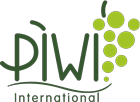This summer, Sweden will have its own 1976-style ”Paris tasting”, setting Swedish wines against international ones. The tasting is part of the effort to market Swedish wine internationally. All under the name The Swedish Wine Tasting 2024.
Sweden has been an official wine country since 2010 and development is rapid. The vineyard area has increased tenfold and the quality has kept pace. The vast majority are PIWI grapes, with Solaris clearly dominating. Now the industry believes it is time to showcase its successes on a larger scale. Swedish Wine Tasting 2024 consists of two parts: one national tasting in June and one international tasting in August, attended by some of the world's best wine tasters such as Andras Larsson and Arvid Rosengren, both world champion sommeliers, take part.
The international tasting will be held on 28 August at Koenigsegg's facility in Skåne. Here, Swedish wines will be placed in a strict blind tasting against international wines in the same style and price range. – It's time for Swedish wine to make the leap from fresh, daring entrepreneurship to high-quality artisan production of international calibre. To give the industry a boost along the way, we believe that an event of this kind is exactly what is needed, says Emma Serner, chairman of SBOV, Sweden’s trade organisation for oenology and wine culture.
The overall aim is to demonstrate the potential of the Swedish wine industry and create conditions for further development and export, as well as to attract foreign visitors.
– Swedish wine production is making great progress in expanding the area under cultivation and expanding the grape varieties and range. We see potential for Swedish food export, new jobs and a new primary industry for Sweden that is in line with local craftsmanship, know-how and quality,” says Maria Kärnerud, program manager of Try Swedish, Business Sweden’s food export program .
An important part is also to be able to showcase Sweden as a sustainable alternative wine growing country as wine production differs from other countries in the EU due to grapes – almost exclusively PIWI – and a generally more sustainable regulatory framework for cultivation.
– Foreign visitors want local food and drink, and restaurants in Skåne are generally good at using local ingredients. However, it is difficult to find local wine in restaurants, but there is great interest in learning more. This is a perfect initiative that we hope will lead to increased demand for local wine in restaurants, says Anna Ek-Gustavsson, Head of Gastronomy Tourism, Visit Skåne.
The national tasting will be held on 3 June in Stadshuset in Stockholm and is mainly aimed at the domestic market. About a hundred wines will be presented and judged. The result will give a general picture of the quality of Swedish wine – at the same time, the tasting is a qualification for the exclusive final tasting in August.
In Sweden, work is also continuing to obtain a geographical indication of origin (PGI) status.
– The idea is to divide the origin according to existing landscapes, says Emma Serner, stressing that the focus is on quality, not a specific taste profile.
– We will be liberal so as not to paint ourselves into a corner. Documents have been submitted to the Swedish National Food Agency for further assessment.
Facts about Swedish wine
• There are currently around 200 wine producers with their own vineyards.
• Almost 8 out of 10 Swedish wines are produced in Skåne in the south.
• In total, there are about 150 hectares of vineyards with a production of about 300.000 litres.
• The industry directly employs about 50 full-time employees – plus several hundred people in the supply, maintenance and service industries.
• The most widely planted grapes are Solaris (about 50 hectares), followed by Cabernet cortis and Pinot Noir Précoce (Frühburgunder).
• Around 95% of the grapes are PIWI.


